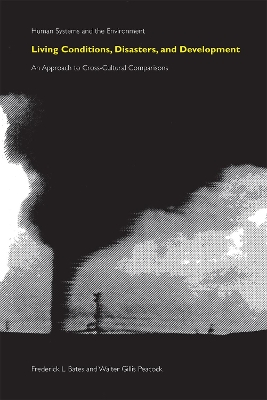Human Systems & the Environment S.
1 total work
Living Conditions, Disasters and Development
by Frederick L Bates and Walter Gillis Peacock
Because most environmental problems result from human intervention in the ecosystem, ecological research in the social sciences is now joining research in the biological and physical sciences as a means of addressing long-range problems. Within this type of social science research, no problem is more important than the investigation of disasters. To assess the impact of sudden cataclysms on the living conditions of families or communities, scientists need a set of pretested, standardized measures that can be used cross-culturally. Once a disaster strikes, investigators are often faced with insufficient tools for assessing its impact and evaluating whether aid programs have enabled households to recover or improve their conditions.
In this book, the authors introduce and describe a measure—the Domestic Assets Scale—-that they have developed to deal with these research problems. They first present theoretical arguments that relate living conditions to the concepts of disaster and development; they then show how the measure was constructed with the use of data collected in sample communities in Italy, Mexico, Peru, Turkey, the United States, and Yugoslavia. Throughout their discussions, they emphasize the practical application of their theoretical arguments and address the research problems and constraints faced by investigators using this procedure. Finally, they assess the validity and reliability of the Domestic Assets Scale and show how it can be used to measure long-term change, especially in the wake of catastrophic events.
